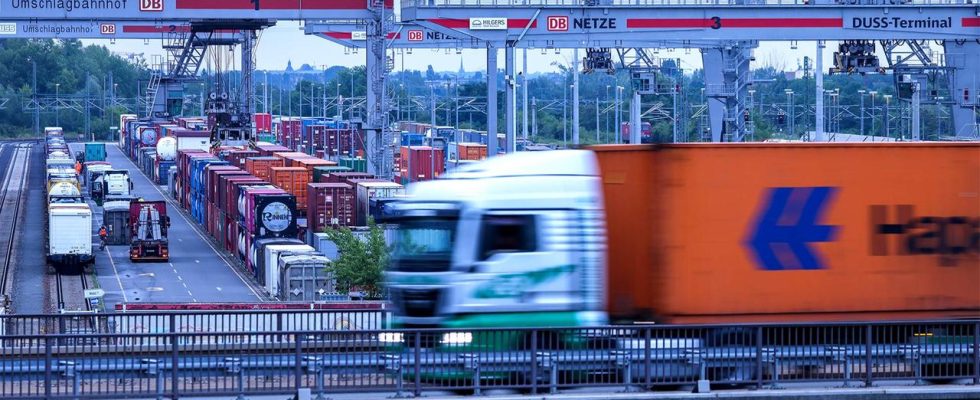Hopes for an economic improvement over Christmas have not been fulfilled. The ifo business climate unexpectedly fell in December after two increases in a row.
The mood in the executive suites of German business surprisingly deteriorated at the end of the year. The Ifo business climate fell by 0.8 points to 86.4 points in December compared to the previous month, the Munich ifo Institute said in its survey of around 9,000 managers. Experts surveyed by the Reuters news agency had expected an increase to 87.8 points. There were increases in October and November.
Companies were again more pessimistic about their current business situation and their prospects for the coming months. “The economy remains weak even during the Christmas season,” said Ifo President Clemens Fuest.
Problem child industry
In industry, the business climate index fell noticeably. “Energy-intensive industries in particular are having a hard time,” explained Fuest. In the service sector, however, sentiment improved slightly. Companies reported less skepticism about the prospects for the coming half-year.
The business situation in the catering industry improved. “Expectations have really plummeted,” explained Klaus Wohlrabe, head of the Ifo surveys. At the same time, price expectations are going through the roof.” The reason for this is the end of the reduced VAT on food at the turn of the year: then 19 percent will be due again instead of the previous seven percent. “Prices will rise in the catering industry,” said Wohlrabe.
Retailers are also anything but euphoric about the ongoing Christmas business. In the construction industry, the index even fell to its lowest value since September 2005.
“A cold shower”
Jörg Krämer, chief economist at Commerzbank, described the data as a “cold shower”. “German companies simply have too much to digest, such as a new interest rate environment, permanently high energy prices and years of erosion in location quality,” says Krämer. The budget crisis is not helpful in this context.
In recent weeks, there has actually been a lot to suggest an end to the economic downturn, especially as the prospect of falling key interest rates for 2024 looms brightly on the horizon, says Jens-Oliver Niklasch, an economist at LBBW. “But with the latest figures from the industry, the downside risks have come to the fore again.”
This means that the economic outlook is likely to deteriorate further. The German economy shrank slightly in the summer. If the gross domestic product declines further in the current quarter, there is a risk of a relapse into a temporary, so-called technical recession.
Economic forecasts become more pessimistic
Many leading economic research institutes such as the ifo, the Berlin DIW and the IWH from Halle have lowered their forecasts for 2024 and only expect growth of 0.5 to 0.9 percent. The union-affiliated IMK even assumes that the economy will shrink by 0.3 percent in 2024, just like this year. “Cuts in government spending, higher taxes and additional uncertainty about further funding for climate protection projects are likely to increase the braking effect of high interest rates and subdued global economic development,” the researchers explained in their forecast published on Monday.
According to Krämer, Commerzbank also expects 0.3 percent for the entire year 2024: “With this forecast, we are still well below the consensus of 0.4 percent, although this has been moving in our direction for months,” he said Expert.
“All in all, we assume that the current stagnation and slight recession will continue,” comments Carsten Brzeski, chief economist at ING. The risk that 2024 will be another year of recession has increased significantly. “It would be the first time since the early 2000s that Germany is going through a two-year recession, although it is likely to be a shallow recession,” Brzeski said.

